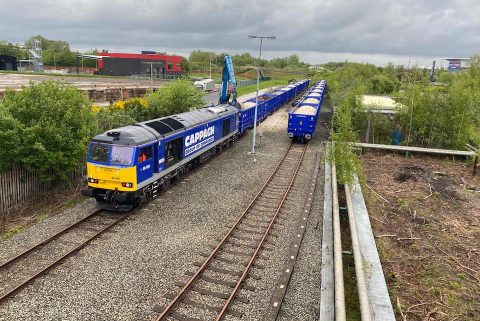Lineas sets up new route to facilitate COSCO’s disrupted sea services

Lineas has set up a new rail freight connection between Zeebrugge in Belgium and Graz in Austria. The service is launched in collaboration with CSP Zeebrugge, a COSCO Shipping Lines terminal. The purpose is to keep COSCO’s supply chain towards Austria running since traffic that used to be directed there via the Greek port of Piraeus is currently impaired due to the situation in the Red Sea.
COSCO has been one of the most heavily affected sea shipping companies by the Red Sea crisis. That is because one of COSCO’s main gateways in Europe, the port of Piraeus, relies almost solely on traffic going through the Suez Canal, which is currently blocked.
As a result, there was a need for quick alternative solutions that led to the launch of the new Zeebrugge-Graz rail service. The purpose is simple: in CSP Zeebrugge, COSCO ships will unload their cargo, which will then find its way to the Austrian market.
Instead of going from south to north, meaning from Piraeus to Austria via the Balkans, as COSCO knows to do very well via rail, a reverse route from north to south will be implemented in this case. The companies did not mention the specifics of the service, such as capacity and frequency. However, considering the backlog and volumes to be served, the itineraries will probably not be infrequent.
Also read:




